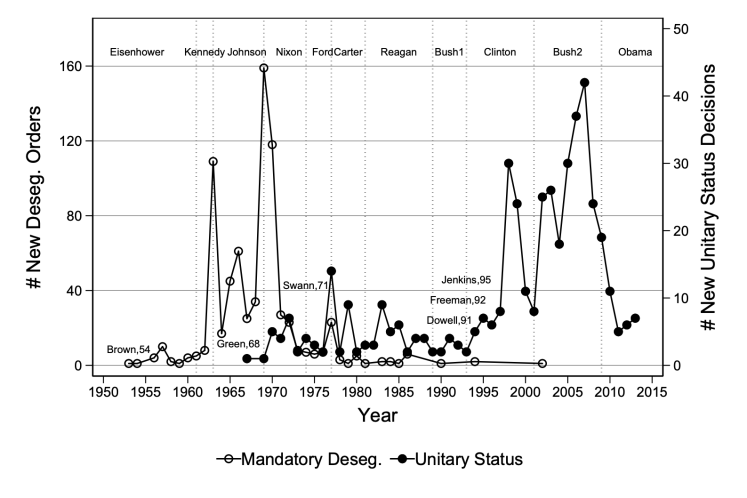New! Automatic Admissions Policies and Segregation

My new article in EEPA (free pre-print version HERE) examines unintended effects of Automatic Admissions Policies (AAPs, a.k.a. “percent plans”). AAPs leverage high school racial segregation to diversify state university admissions by guaranteeing students above a class rank threshold (e.g., top 10%) in their high school admission to state universities. People may respond by “gaming” the policy, choosing less academically competitive high schools. Given stereotypes about predominantly minority schools being less competitive, white students could become more prone to attend those schools, which could reduce segregation but threaten to undermine the ability to reduce racial inequality in college-going opportunities.
I find some evidence that AAPs in Texas and California led to declines in segregation in highly segregated districts, but maybe not on a scale to severely undermine the policy. This highlights the complex relationship between segregation and equality of opportunity, and the need to attend to the ways students sort across schools in response to egalitarian policies. More info here: https://jeremyefiel.com/school-segregation/.





